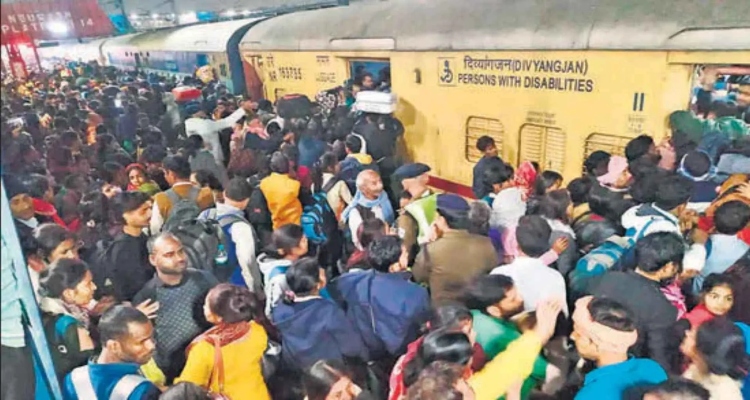
The Delhi High Court has sought a response from the Indian Railways regarding a Public Interest Litigation (PIL) filed in the wake of a devastating stampede at New Delhi Railway Station, which claimed 18 lives.
The incident, which occurred on Platform No. 16 during peak hours, has been attributed to severe overcrowding and administrative negligence. The petition contends that this failure to manage passenger movement effectively constitutes a violation of the fundamental right to life enshrined under Article 21 of the Indian Constitution.
The PIL, submitted by the legal and entrepreneurial organization Arth Vidhi, through Advocates Aditya Trivedi and Shubhi Pastor, alleges that the simultaneous arrival and departure of multiple long-distance trains on the Delhi-Prayagraj route during the Mahakumbh pilgrimage significantly contributed to the tragedy.
It further asserts that the Indian Railways failed to enforce crucial safety measures outlined in Sections 57 and 147 of the Railways Act, 1989, which are intended to prevent such calamities.
A bench comprising Justice Devendra Kumar Upadhyay and Justice Tushar Rao Gedela has directed the Railway Board to conduct an exhaustive assessment of the incident and submit a formal affidavit outlining the measures being taken to prevent similar occurrences in the future.
The next hearing in the case has been scheduled for March 26. The Court emphasized that the concerns raised in the petition underscore a systemic failure by the Railways to implement essential safety regulations effectively.
Section 57 of the Railways Act mandates railway administrations to regulate the maximum number of passengers permitted within train compartments to mitigate overcrowding risks. Section 147 requires individuals without a valid travel reservation to obtain platform tickets before entering railway premises.
The petition argues that despite these statutory provisions, enforcement remains inadequate, particularly during mass gatherings such as the Mahakumbh, thereby exacerbating the risk of such disasters.
Representing the Railways, the Solicitor General informed the Court that the administration does not perceive the matter as adversarial litigation and assured that a comprehensive internal review is being conducted at the highest level.
The Court acknowledged this position but reiterated the necessity for proactive governance to ensure passenger safety, particularly during high-demand travel periods.
The petition further highlights that even under routine operational conditions, the Railways’ failure to rigorously enforce existing safety protocols has led to dangerously overcrowded trains and platforms, placing passengers at risk.
Court’s directive underscores the urgency of implementing a more stringent, accountable approach to crowd management, particularly given the recurrence of preventable tragedies in the railway network.
Read More: Supreme Court, Delhi High Court, States High Court, International




